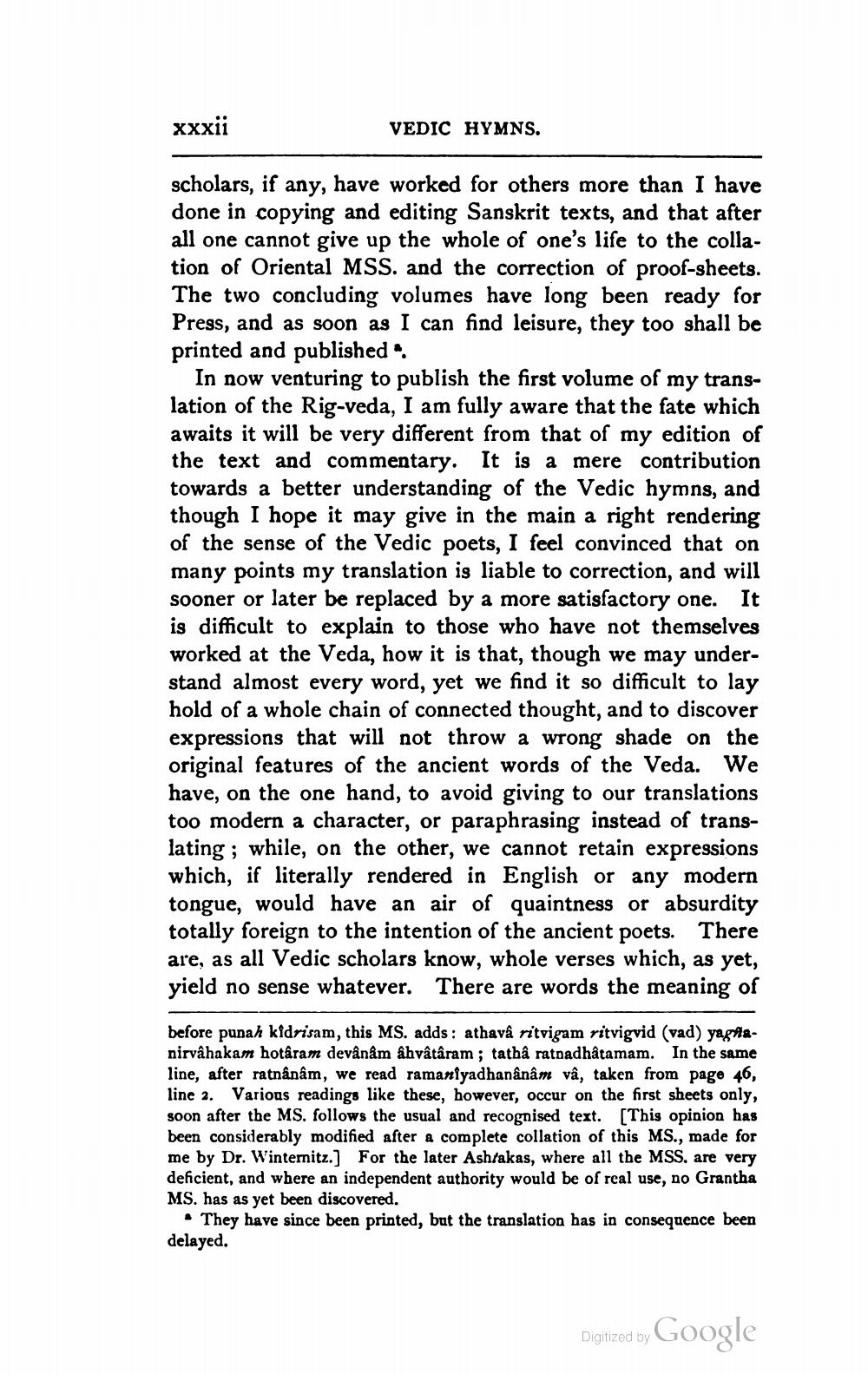________________
xxxii
VEDIC HYMNS.
scholars, if any, have worked for others more than I have done in copying and editing Sanskrit texts, and that after all one cannot give up the whole of one's life to the collation of Oriental MSS. and the correction of proof-sheets. The two concluding volumes have long been ready for Press, and as soon as I can find leisure, they too shall be printed and published".
In now venturing to publish the first volume of my translation of the Rig-veda, I am fully aware that the fate which awaits it will be very different from that of my edition of the text and commentary. It is a mere contribution towards a better understanding of the Vedic hymns, and though I hope it may give in the main a right rendering of the sense of the Vedic poets, I feel convinced that on many points my translation is liable to correction, and will sooner or later be replaced by a more satisfactory one. It is difficult to explain to those who have not themselves worked at the Veda, how it is that, though we may understand almost every word, yet we find it so difficult to lay hold of a whole chain of connected thought, and to discover expressions that will not throw a wrong shade on the original features of the ancient words of the Veda. We have, on the one hand, to avoid giving to our translations too modern a character, or paraphrasing instead of translating ; while, on the other, we cannot retain expressions which, if literally rendered in English or any modern tongue, would have an air of quaintness or absurdity totally foreign to the intention of the ancient poets. There are, as all Vedic scholars know, whole verses which, as yet, yield no sense whatever. There are words the meaning of
the first s Page 46
before punah kidrisam, this MS. adds: athava ritvigam ritvigvid (vad) yagilanirvâhakam hotaram devânâm åhvâtâram ; tatbâ ratnadhâtamam. In the same line, after ratnânâm, we read ramaniyadhanânâm vâ, taken from page 46, line 2. Various readings like these, however, occur on the first sheets only, soon after the MS. follows the usual and recognised text. [This opinion has been considerably modified after a complete collation of this MS., made for me by Dr. Winternitz.] For the later Ashtakas, where all the MSS. are very deficient, and where an independent authority would be of real use, no Grantha MS. has as yet been discovered.
. They have since been printed, but the translation has in consequence been delayed.
& como ecognised to
Digized by Google




